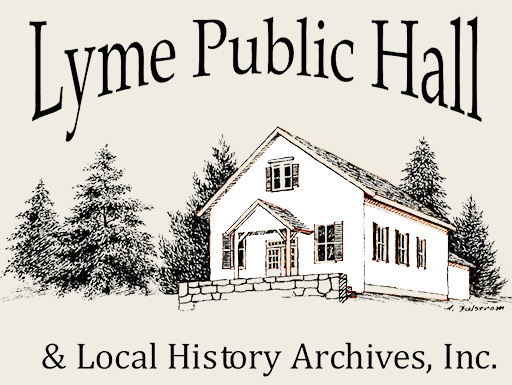Flashback to 2008 when the the Local History Archives was ten years old. Our newsletter that year celebrated the occasion with the article below. We focused more specifically on the driving force behind the Archives, Carolyn Bacdayan, in our 2020 newsletter (Passionately Preserving Lyme’s History by Joan Motyka) and our 2021 newsletter (Carolyn Bacdayan, Archivist Emeritus by Rolf Wolfswinkel).
Now we’re celebrating more than Carolyn Bacdayan’s accomplishments in creating the Archives (with the assistance of many, many other participants.) We’re celebrating the move forward.
In establishing a first class archival system for the town of Lyme, Carolyn put her successor, Julie Hughes, in a position to transition our archives in a very few months to ArchivesSpace through the generous (aka free) services offered by Connecticut Archives Online.
On July 1, 2021 archival information that had been available only by walking into the Archive room at the Lyme Public Library became available online to researchers around the state. In this way, Carolyn’s legacy continues to enrich the town of Lyme.
The Local History Archive at Ten Years
There was a dream: “To collect and preserve documents, artifacts and other materials that would memorialize Lyme life and history and be acces- sible for research”. It was an important but deferred part of the initiative undertaken by several Lyme citizens in 1985 to re-establish the Lyme Public Hall Association
In 1996 an exploratory committee of the board composed of Jean Lee, Hiram Maxim, Eleanor O’Connell, Elizabeth Putnam, Patricia Stark and Carolyn Bacdayan, chair, was formed to investigate what would be needed to create an archive of local history for Lyme. After visits to regional museums and archives, the committee concluded that the project was not only feasible but that there was an urgency to begin work because of the number of elderly individuals with personal memories and family memorabilia. This situation together with a growing interest in the town’s history pointed clearly to the value of a secure and professionally operated local history archive.
Patricia Stark, Lyme resident and career archivist, and Carolyn Bacdayan developed a mission statement and guidelines for what would be collected as well as a first set of operating policies. A bequest from the late Verne Hall, a former board member, helped fund archival shelving, processing and storage supplies, and creation of a climate controlled collection storage room.
On June 14, 1998, the local history archive was dedicated in a public ceremony at the Hall with Mark Jones, the Connecticut State Archivist, as guest speaker. An exhibit about Lyme’s one room schools was presented, the first of many using archival materials. In response to publicity, memoirs, letters, photographs, ledgers and more started to flow in to be added to our first donation, Elizabeth Putnam’s collection of newspaper articles about Lyme covering the 20th century.
In these ten years 133 donors have given more than 4,000 items, now archived in 46 collections. There are collections specific to local organizations including churchs, the Lyme Grange and Hamburg Fair and collections that focus on particular families or an individual. Donations from former town historian Elizabeth Plimpton, genealogical research from William Beebe, and the Putnam gift make up the largest collections. The manuscript and photograph collections are also sizable. A computerized data base of all items in the collections, searchable by subject, is maintained and available to researchers.
Since 1998, Carolyn Bacdayan has served as the volunteer archivist. Warner Lord, Madison archi- vist, was an especially helpful mentor during the start up. The challenging job of processing archi- val materials could not have been done without help over extended periods of time from Lyme residents Hilde Reichenbach, Doad Jewett, Mary Cather- wood, Betsy Buch, Wendy Hill, Sara Denow and the late Eleanor O’Connell and Elizabeth Putnam. Thanks to all who have donated materials, funds, time, professionalism and their enthusiasm. With future support, the archives will continue to be an important community asset.
